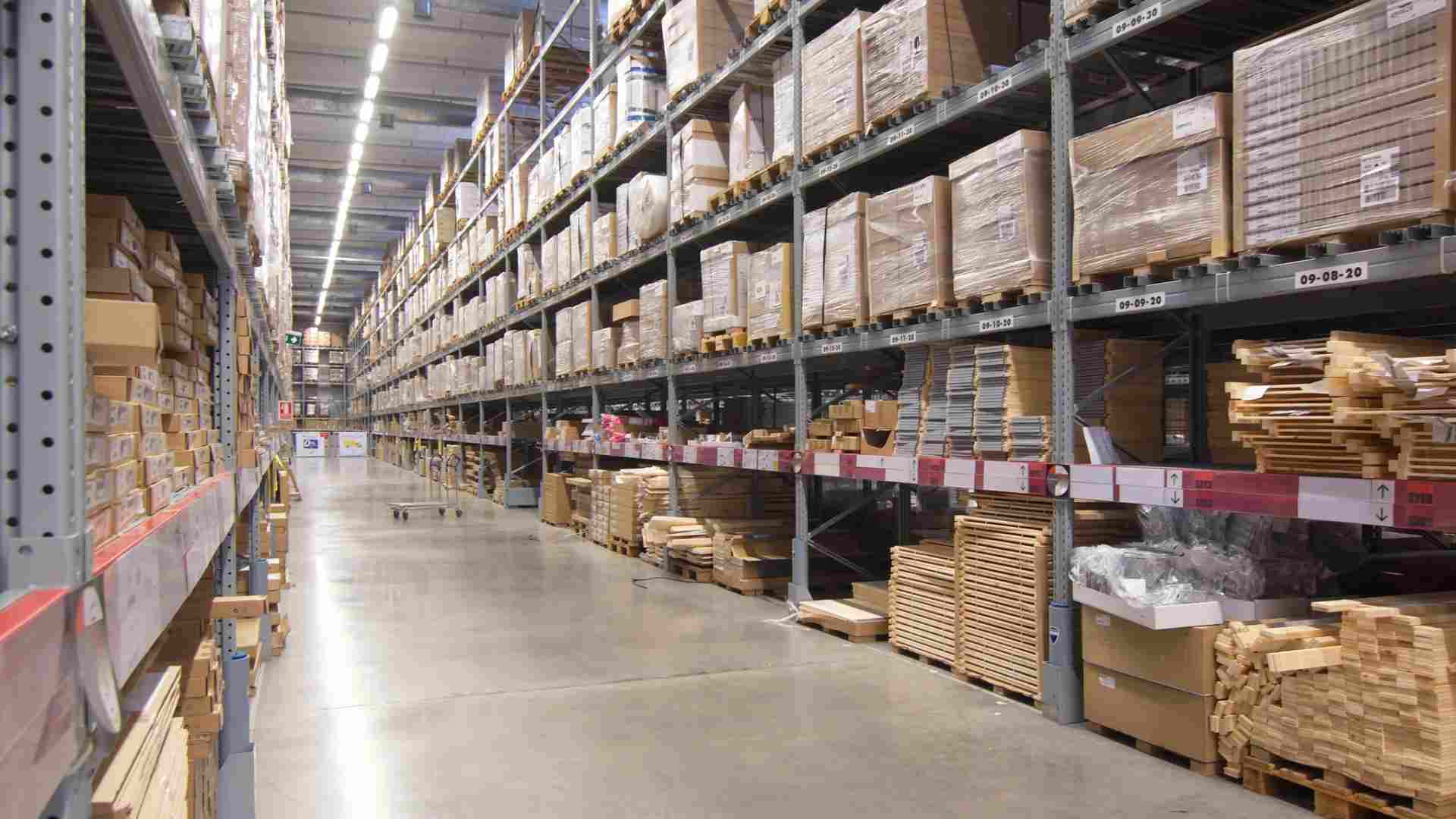In today’s dynamic business environment, the integration of supply chain management and Enterprise Resource Planning (ERP) systems has become essential for companies aiming to enhance efficiency and competitiveness. By seamlessly connecting these two critical components, businesses can achieve streamlined operations, improved decision-making, and overall superior performance. This integrated approach not only optimizes resource utilization but also enables real-time visibility across the entire supply chain, fostering better collaboration and responsiveness to market demands.
As a business owner or manager, you’re constantly looking for ways to streamline operations and gain a competitive edge. Integrating your supply chain processes with your ERP system is one approach that can significantly impact your bottom line. However, making such a large-scale change can seem daunting without a proper roadmap.
In this guide, we’ll break down what supply chain integration with ERP entails, the key benefits it provides, and best practices for successful implementation. We’ll also look at real-world examples of companies that have optimized their operations through this approach. By the end, you’ll have a solid understanding of how to evaluate if integration is right for your business and how to get started.
What are Supply Chain Management and ERP?
Supply chain management involves planning and overseeing the flow of goods, services, and information between suppliers, manufacturers, warehouses, distribution centers, and customers. The goal is to meet demand while minimizing costs and resources used.
Some core supply chain functions include procurement, production planning, inventory management, transportation, and demand forecasting. Companies rely on these areas working seamlessly together to fulfill orders on time and within budget.
ERP stands for Enterprise Resource Planning. It’s a software system that allows businesses to manage resources, information, and processes across departments like finance, operations, sales, and HR on a single integrated platform.
Modules within ERP systems support core business functions like order processing, inventory control, production scheduling, and financial reporting. Data is stored in a central database for real-time visibility and decision-making.
Benefits of Integrating Supply Chain and ERP
By linking supply chain data and activities with the broader ERP system, companies gain several advantages:
- Single Source of Truth: Integrated systems provide a unified view of inventory levels, orders, production schedules, and more from any location. This eliminates data silos that lead to inefficiencies.
- Real-Time Visibility: Managers have access to up-to-date supply chain metrics right within their ERP dashboard. They can track KPIs and resolve issues proactively.
- Automated Workflows: Manual, error-prone processes are replaced with automated workflows spanning procurement, manufacturing, distribution, and beyond. This boosts productivity.
- Fact-Based Decision Making: With all supply chain and business data in one place, managers can make strategic decisions backed by real-time analytics and forecasting.
- Cost Savings: Fewer errors, better resource allocation, and optimized operations translate directly to the bottom line through reduced expenses.
- Scalability: Integrated systems grow alongside the business, supporting increased transaction volumes and expanding operations seamlessly.
Common Integration Methods
When connecting supply chain systems to ERP, companies typically use one of the following approaches:
- API Integration: Exposing ERP data/services through APIs allows external applications to securely retrieve and share information programmatically.
- EDI: Electronic data interchange electronically transmits documents like purchase orders between trading partners for automated processing.
- SCP Modules: Supply chain planning modules within the ERP like Advanced Planning and Scheduling automate forecasting, replenishment, production, and distribution planning across the extended chain.
The best method depends on factors like existing tech infrastructure, data volumes, integration requirements, and technology skills available in-house. A hybrid approach is also common.
Challenges to Address During Implementation
While integration unlocks significant benefits, it also presents challenges to overcome:
- Data Standardization: Different systems may use varying data structures/formats, requiring mapping and normalization during migration.
- Resistance to Change: Employees accustomed to legacy processes may resist new workflows, impacting adoption if not addressed proactively.
- Operational Disruptions: Downtime during implementation and migration can interrupt order fulfillment and other critical functions if not managed carefully.
- Security Concerns: Integrating systems expands the attack surface, requiring enhanced authentication, authorization, and monitoring to protect sensitive data.
- Regulatory Compliance: Integrated systems must still support compliance with industry regulations around trade, transportation, and more.
Proper planning, testing, training, and change management are essential to address these challenges and roll out integration successfully.
Best Practices for Integration Success
To maximize benefits and minimize risks, consider these best practices when integrating supply chain and ERP:
- Evaluate Current State: Comprehensively review existing processes, systems, data, and pain points before defining requirements.
- Select a Flexible Solution: Choose technology that can support future business growth through scalability and new capabilities like analytics.
- Adopt Cloud and Automation: Leverage cloud deployment for agility and automation technologies to streamline workflows across systems.
- Implement in Phases: Break integration into stages, testing each phase thoroughly before moving to production to contain issues.
- Focus on Change Management: Proactively prepare employees for process changes through training and buy-in to boost adoption.
- Continuously Optimize: Integration is an ongoing process – establish governance to routinely evaluate performance and identify optimizations.
Understanding the Role of Change Management in Integration
Any large-scale change initiative within an organization is bound to face resistance from those impacted. Integrating supply chain systems with ERP is no different. However, with proper change management strategies in place, these challenges can be overcome.
Change management involves preparing stakeholders for how processes, roles, and day-to-day tasks may evolve. It’s about clearly communicating the reasons for change and addressing concerns that arise. Most importantly, change management gains employee buy-in which is critical to the success of any new implementation.
Effective Change Management Strategies
Some effective strategies for managing change during integration include:
- Communicating the vision and goals regularly through multiple channels to keep stakeholders informed and engaged. This helps them understand how their roles will be impacted.
- Forming a cross-functional change leadership team comprising representatives from key areas like procurement, planning, shipping, etc. This team can then cascade communication.
- Providing training on new systems, workflows, and KPIs well in advance of going live through various formats suited to different learning styles.
- Addressing concerns and resistance transparently by actively soliciting feedback and ensuring no questions remain unanswered.
- Recognizing early adopters who can then encourage others and act as champions of change. Their success stories motivate broader acceptance.
Overcoming Resistance to Change
It’s natural for humans to resist change due to the unknown and perceived threats to the status quo. However, with empathy and communication, resistance can be overcome. Some effective strategies include:
- Acknowledging people’s emotions around change and making them feel heard using active listening.
- Explaining how roles may evolve rather than disappear completely to alleviate fears of redundancy.
- Highlighting specific benefits and opportunities the new system provides to incentivize buy-in.
- Involving resistors in the transition process where possible so they feel a sense of control and ownership.
- Addressing logistical concerns around training and support to build confidence in managing change.
With patience and consistency, even the most hesitant individuals can be won over through a people-centric change management approach.
Why Versa Cloud ERP is Ideal for Integrated Supply Chain Management
The strategies discussed in this guide are best implemented using fully integrated ERP software like Versa Cloud ERP. As a unified platform, Versa allows seamless data sharing across all supply chain functions including inventory, warehousing, manufacturing, and 3PL integration.
Versa’s modern cloud architecture provides flexibility to customize workflows for any business model. Its role-based interfaces cater to the unique needs of each stakeholder like planners, buyers, shipping agents, etc. Versa’s powerful reporting and analytics tools offer real-time visibility across the extended supply chain.
As a true cloud ERP, Versa ensures data and configurations are always up-to-date across user locations. Its scalability supports growth without disruptive upgrades. Versa also reduces IT costs by eliminating on-premise infrastructure and maintenance. With Versa, supply chain processes can be optimized in a matter of months instead of years.
Most importantly, Versa was designed with change management top of mind. Its intuitive interface requires minimal training and adoption is much faster. Versa also offers implementation templates for common scenarios, expert configuration services, and round-the-clock support to guide transformations seamlessly.
If you’re looking to take the first step towards integrated supply chain management, book a free customized demo of Versa Cloud ERP today. Our experts will demonstrate Versa’s full capabilities and answer any questions. You’ll see why Versa is the best choice for inventory management, distribution, manufacturing, and beyond.
Frequently Asked Questions
Q: What are the biggest risks of integration?
A: If not addressed properly, potential operational disruptions during rollout and increased security vulnerabilities. However, the benefits far outweigh these risks with careful planning and governance.
Q: How do you ensure data accuracy across systems?
A: Establish data standards, periodic validation/reconciliation, and change control processes. Also, leverage automation to minimize manual data entry and errors.
Q: How do you select an integration partner?
A: Consider their experience, security certifications, technology expertise, support availability, and compatibility with your existing tech stack. Evaluate carefully to prevent issues down the road.
Q: Can integrated systems still support regulatory compliance?
A: Absolutely – with proper controls and reporting capabilities, integration enhances rather than hinders compliance through increased visibility, audit trails, and analytics.
ERP systems are fundamental to the efficient management of a modern supply chain in the manufacturing sector. By integrating various business processes, ERP systems streamline operations, enhance visibility, and improve decision-making, making them indispensable tools for manufacturers aiming to stay competitive in today’s market.
Empower your business with the knowledge to navigate the realm of an Integrated ERP solution, specifically tailored to your business needs. Gain insights, streamline processes, and propel your financial management to new heights with this comprehensive guide
With Versa Cloud ERP’s Implementation guide learn how a business can ensure a successful ERP Solution Implementation. Navigate the complexities of implementation with confidence!
Effectively manage your financials, accounting, inventory, production, and warehouse management workflows with our award-winning ERP.
Let Versa Cloud Erp’s do the heavy lifting for you.
[widget id=”custom_html-40″]
[widget id=”custom_html-42″]
[widget id=”custom_html-30″]
Do Business on the Move!
Make your businesses hassle-free and cut the heavyweights sign up for the Versa Cloud ERP today!!
Join our Versa Community and be Future-ready with us.






